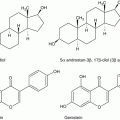Need for intensive luteal support after GnRH triggering
Rec-LH is expensive
Local side effects of IM P
Efficacy of vaginal P
Patient compliance to SC P
Proven efficiency of oral and transdermal E2
Need for monitoring P and E2?
Luteal support duration?
“Freezing all” option
2.5 GnRH Cotreatment in the Luteal Phase
It has already been published that the administration of a GnRH agonist during the luteal phase could accidentally be involved with the establishment of a pregnancy [11]. Other studies have suggested that GnRH administration at the time of implantation enhances embryo potential by a direct effect on the embryo and improves implantation in oocyte recipients and in normal IVF patients [12, 15].
In a meta-analysis including six relevant RCTs with 2012 patients, it has been shown that GnRH addition during the luteal phase significantly increases the probability of clinical pregnancy and of live birth [8].
2.6 Cessation of Luteal Support
It has been classically said that luteal support should continue until the 8th gestation week. However, we have now enough evidence that confirms that luteal support could cease on the day of positive HCG, considering that embryonic HCG will rescue the corpus luteum and will protect the pregnancy. For this reason, we accept that progesterone supplementation can be safely withdrawn at 5 weeks of gestation, and ongoing pregnancy and miscarriage rates will not be affected by this discontinuation [9].
The currently available evidence clearly suggests that luteal phase support is mandatory given that if independently the ovarian stimulation protocol is used, the luteal phase will be altered.
References
1.
Beckers NG, Macklon NS, Eijkemans MJ, Ludwig M, Felberbaum R, Diedrich K, Bustion S, Loumaye E, Fauser BC (2003) Nonsupplemented luteal phase characteristics after the administration of rec-HCG, rec-LH, or GnRH agonist to induce final oocyte maturation in IVF patients after ovarian stimulation with rec-FSH and GnRH antagonista cotreatment. J Clin Endocrinol Metab 88(9):4186–4192CrossRefPubMed
2.
Elgindy EA, El-haeig DO, Mostafa MI, Shafiek S (2010) Does luteal estradiol supplementation have a role in long agonist cycles. Fertil Steril 93(7):2182–2188CrossRefPubMed
Stay updated, free articles. Join our Telegram channel

Full access? Get Clinical Tree




